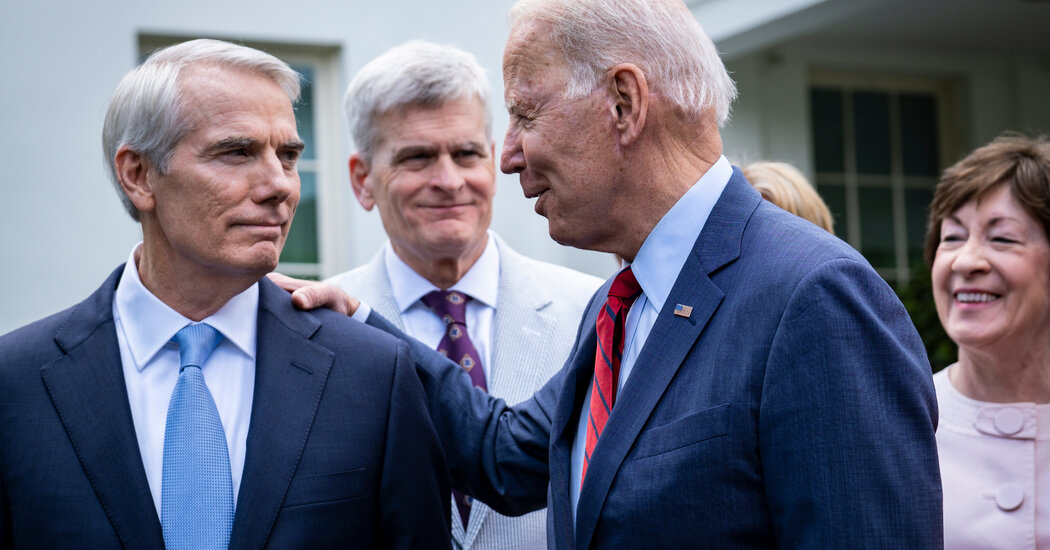
If you take roughly the same number of years, roughly the same types of proposals he wanted, he would want to spend about twice as much. So one, it is obviously better for Republicans and for the country, in my view, for us to have a proposal that focuses on core infrastructure that is separate from whatever would happen in reconciliation.
Second, Democrats were going to move ahead with reconciliation one way or the other. The question was whether infrastructure would be part of it or not. I’ve never thought that they weren’t going to move forward with reconciliation because we were doing the infrastructure bill. Of course, they will try. But it doesn’t mean that they’ll be successful in doing everything that they want to do, because there are obviously a lot of Democrats who don’t want to go as far as, say, Senator Sanders or Speaker Pelosi or Majority Leader Schumer.
We’ll see what happens, but our package is independent of that, and that point has been now made clearly by the president that he will be looking to sign both bills.
It seemed that trying a good-faith bipartisan negotiation was almost a condition for some of these moderate Democrats to move forward with a broader reconciliation package. Why give the president that pathway, and the ability to say he is fulfilling a campaign promise to cut bipartisan deals? There are certainly some Republicans who would not make that choice.
I don’t agree at all with your premise. I just disagree. Democrats are going to move forward with reconciliation, and try to do it no matter what — we all know that. The question is whether what I would think is fair to say is the most popular aspect of it among the American people, which would be infrastructure, whether that is going to be pulled out and dealt with separately in a bipartisan manner.
One legitimate argument, of course, would be that by taking that sweetener out of the reconciliation package, it’s less likely that reconciliation will pass at the level that Democrats are talking about.
But I don’t see that there’s any reason that Republicans would be opposed to dealing with infrastructure separately. That makes all the sense in the world, because we, for the most part, we support infrastructure. President Trump had a $2 trillion infrastructure package, but so did every president in recent history, including Republicans.




